The whole program Backend Conf: from microservices to endless data
Recently, at the RIT festival, there are less reports on server programming than on client programming. Whether this is due to the popularity of noBackend approaches, a general shift of focus towards the frontend, or simply the traditions of the conference is hard to say.
However, there are as many as 25 reports in the Backend Conf program, and we decided to create a complete guide to them all. Because it is still two streams, and still have to choose where to go.
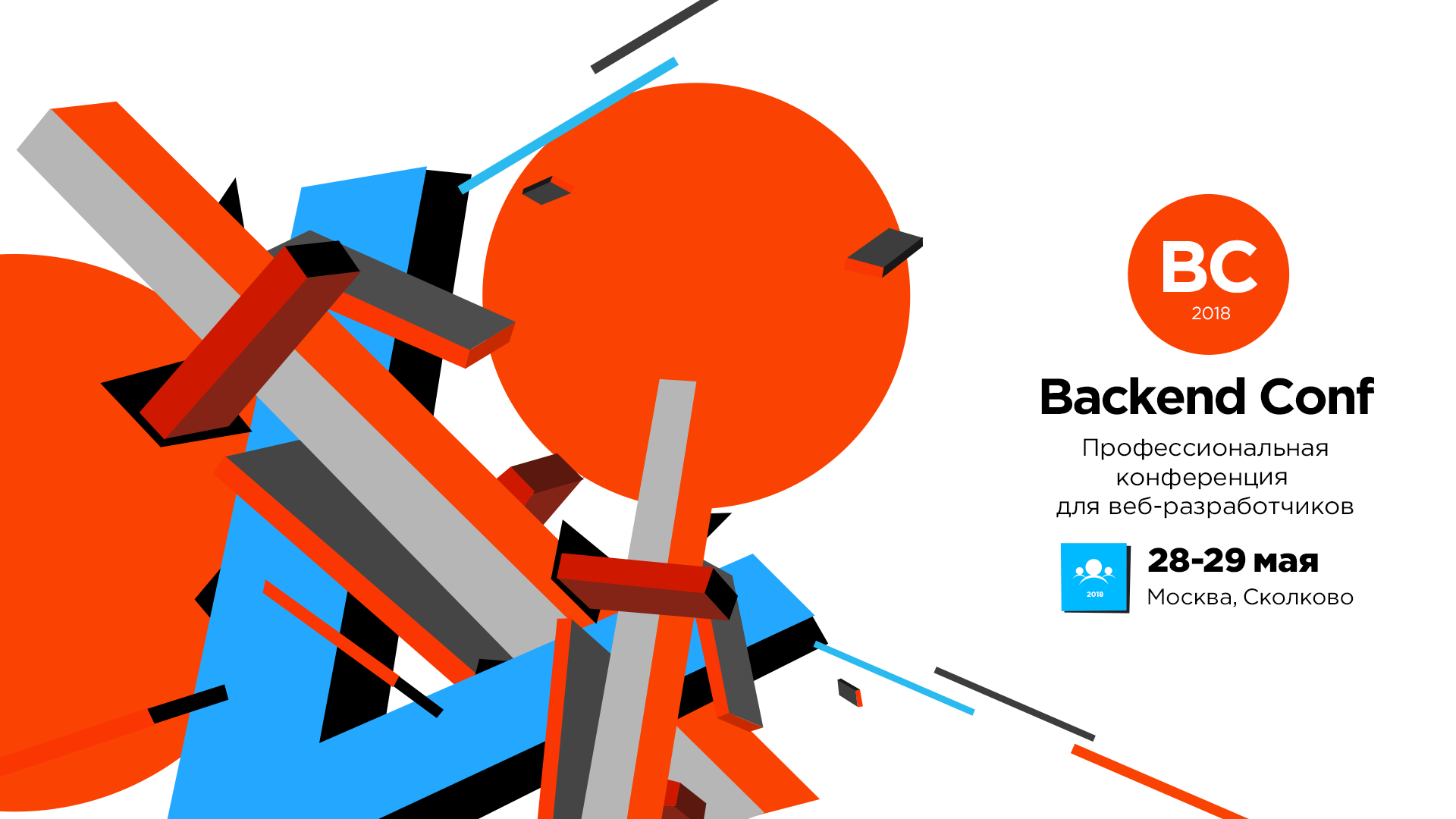
')
Not many reports of this direction due to their specificity will be held in the main hall, so we don’t single them out separately, but we’ll go right on schedule.
On the first day at 9:30, opening and welcoming words await us, and the beginning of all reports at 10:00.
Alexander Serbul from 1C-Bitrix will open the program with a report on the features of lambda architectures , the Amazon Lambda microservice platform, pitfalls and victories with Node.JS and multi-threaded Java , as well as the difficult choice between LMDB, LevelDB, Apache Derby and Berkeley DB .
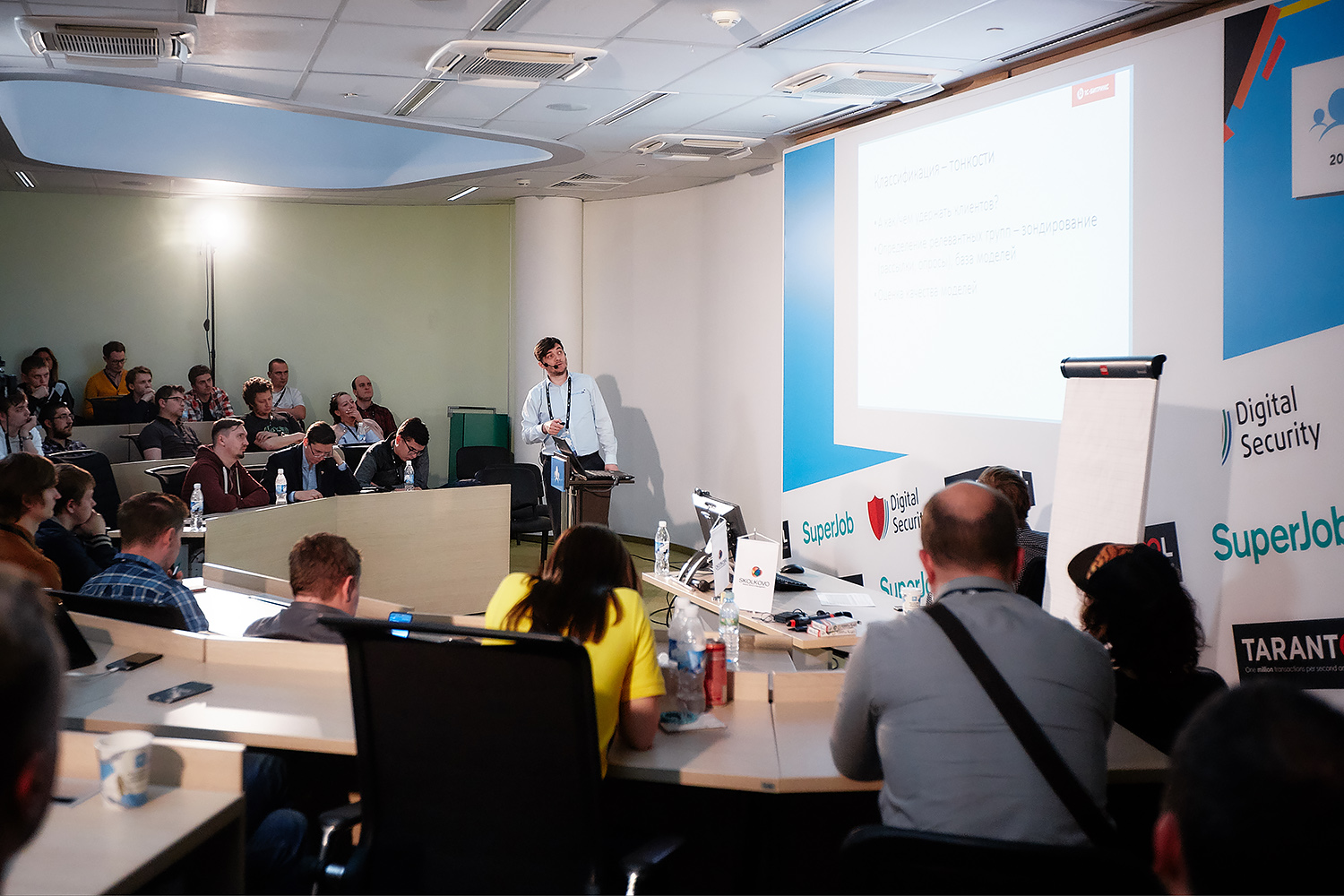
In Lamoda, at the beginning of the transition to the microservice architecture, they saw a number of dangers from the possible connectivity of services. Nevertheless, time to market was reduced by 2 times and retained control over microservices, which Andrei Evsyukov will tell about .
Although the main advantages and disadvantages of microservice architecture have already been discussed more than once, the factor of a specific case always remains. In his report, Kirill Vetchinkin plans to make out how to design a real microservice architecture, and what technologies will help us with this.
If, however, microservices do not start you, then Alexander Shvets from Xeteq in a parallel stream will acquaint you with the magic of Elixir in the e-mail list. He will tell you why you may need to make your mailing system in 2018, why use Elixir, and how to reduce the server fleet by 10 times, without reducing the pool of IP addresses.
After that, the founder of IPIP.net, Gao Chunhui, will start the topic of databases with a description of the characteristics of the database with accurate Geo-IP data , such as: a global monitoring platform; correction of inaccuracy; global WHOIS / BGP / ASN / RADB reference information; About IPIP.net rDNS, etc.
After that, you can stop for lunch, or grab a couple of pies and run to the main hall for a report by Konstantin Osipov (tarantool.org) with a comparison of architecture and technical solutions in the implementation of sharding in modern SQL and NoSQL systems, in particular, Couchbase, MongoDB , Cassandra, CockroachDB and, of course, Tarantool .
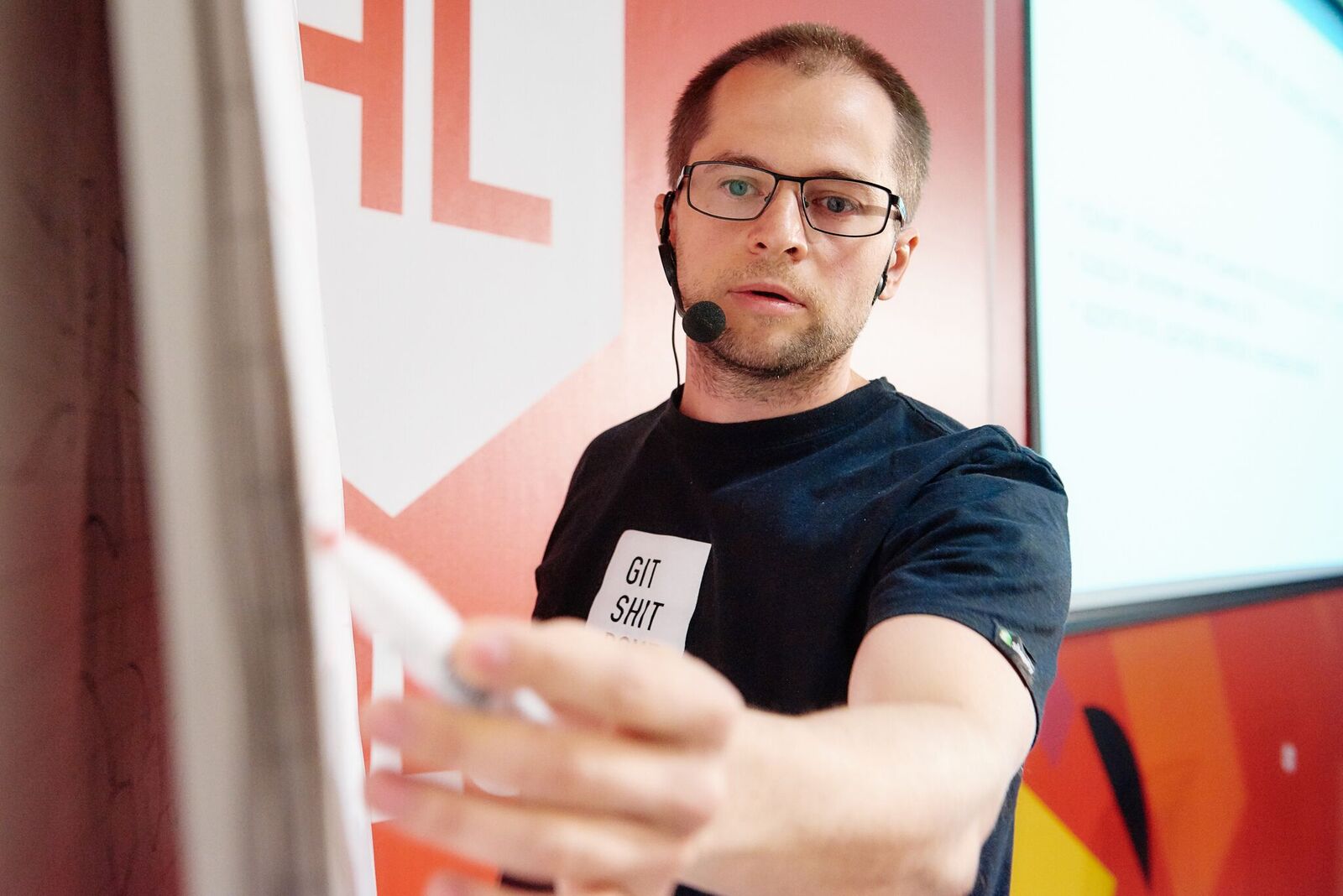
Further, back-tenders will not have to suffer with the choice and migration from the hall to the hall, you can get comfortable and listen:
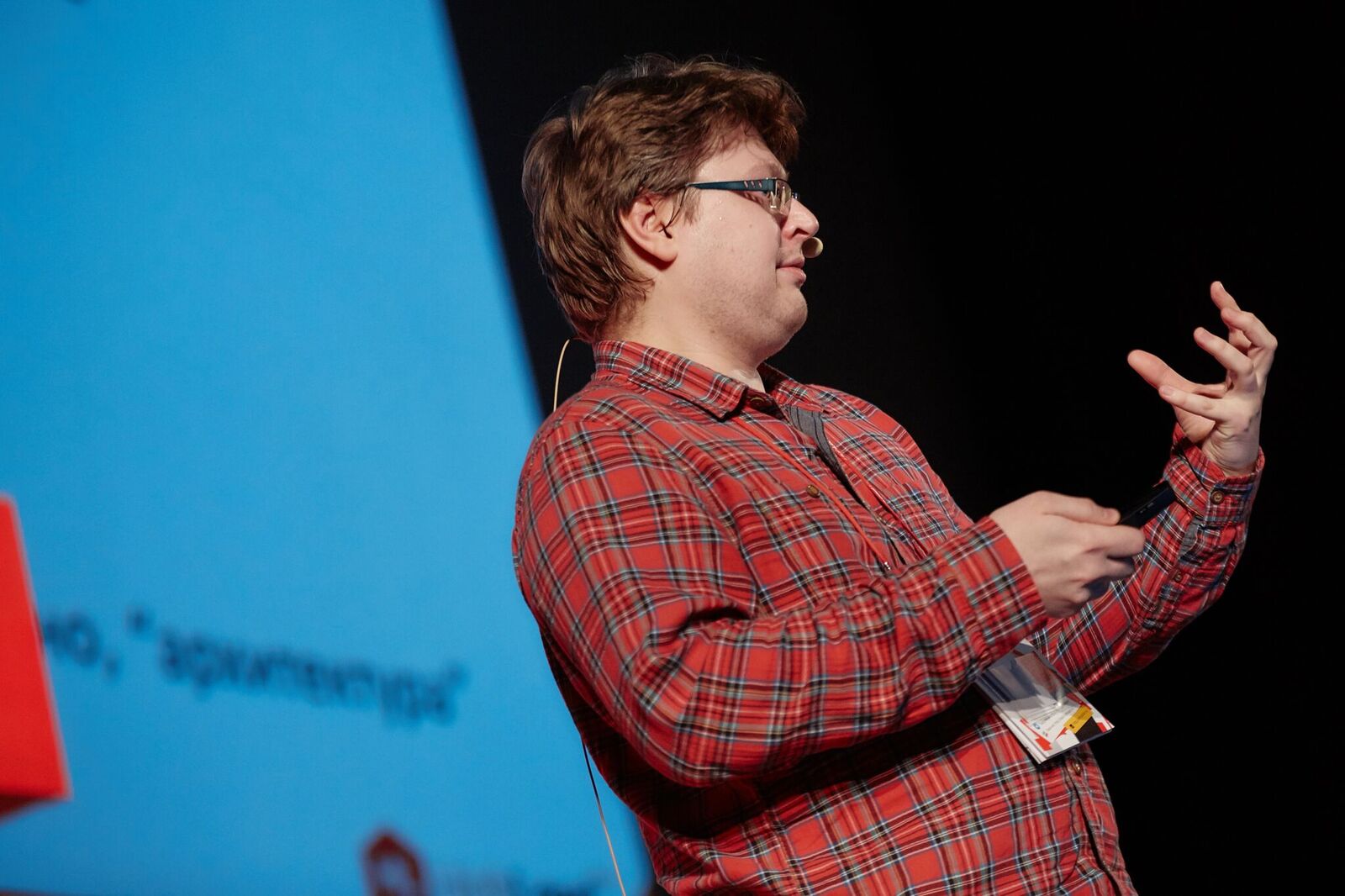
The second day will be more stressful, but the beginning of the reports is very humanly scheduled for 10:00.
So, the morning in the big hall will be held under the banner of immersion in PostgreSQL :
At 11:00 in the second hall will begin the discussion of testing issues .
Yury Badalyan will tell you how 2GIS is testing a bundle of a large number of services and a whole zoo of technologies , what options you tried and what you came up with.
Frol Kryuchkov will share Avito's way to avoid all the problems of Consumer-driven contract testing, using native tests written in the languages of consumer services that are assembled into a docker image and run when there are changes in the service on which they depend.
At 1:00 pm, again, it will be necessary to somehow break between the lowly desire to eat and learn something new, namely: why Artyom Gavrichenkov from Qrator Labs claims that the Internet to which we are accustomed is doomed ; or why the developer needs statistics and how to improve the quality of the product from Yuri Lilekov (Badoo).
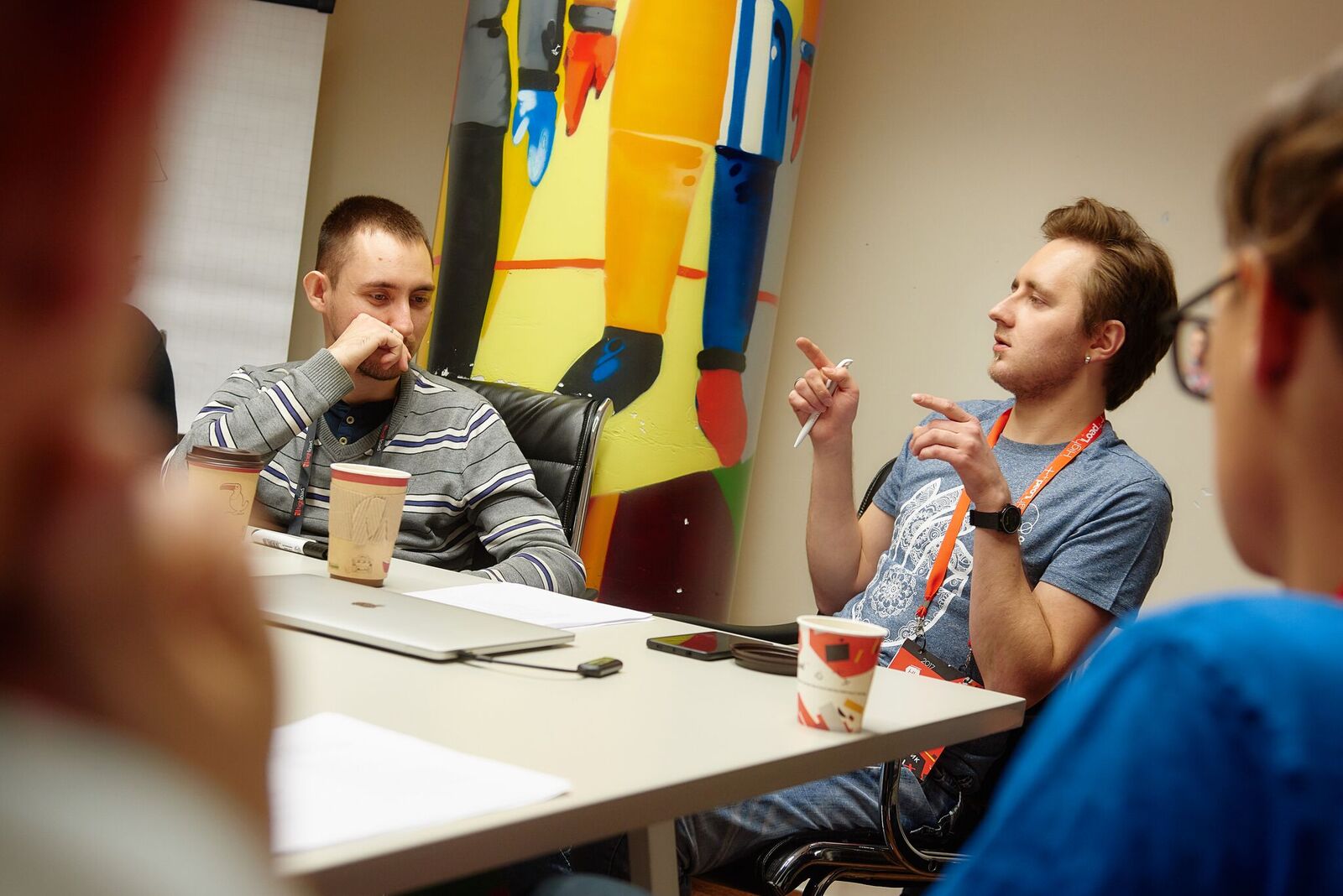
Further, to be honest, it is not easier - two streams without spaces.
Sergey Vasiliev, developer of the well-known PVS-Studio, will talk about the principles of static code analysis , advantages and disadvantages, correct and incorrect usage scenarios, as well as how to get the most out of using the analyzer.
One of ClickHouse developers, Alexey Milovidov, plans to dedicate his report to the little-known ClickHouse features that are not well covered in the documentation.
Alexander Zaitsev (LifeStreet, Altinity) will continue the topic and talk about what areas and how ClickHouse is already used in various companies in the world, how it allows you to do something that used to be either very difficult or very expensive.
Renat Idrisov (MZ) draws our attention to the fact that in the real world the data are far from always finite, and the transition from the finite to the infinite is too easy to do wrong. From the report we learn what needs to be done instead of an infinite loop.
Vyacheslav Kryukov from, as you might guess, Avito will make a report on the current results in the development of Avito search, which will present both the product and the technical view , as well as the relationship of these aspects.
It's all in one room, and, meanwhile, in a nearby audience ...
Dmitry Lenev is a member of the MySQL Server Runtime team at Oracle and promises to tell us about the new version of MySQL DBMS , which will soon be announced stable. One of the interesting features of MySQL, which are available starting from this version, are generic table expressions (Common Table Expressions) and window functions.
Alexander Tokarev from DataArt will try to answer the question whether it is necessary to develop a faceted search , if it has already been developed, and if it is necessary, then how not to make a mistake.
Roman Poborchy and Nikita Povarov (JetBrains) will show an algorithm that includes data on the user's past behavior in statistics and makes it possible to carry out experiments of a smaller size with the same results. We will probably see one or two formulas .

A report by Anton Olievsky from Superjob “ Testers against testing ” on how to restructure the testing process, and as a result, increase the average speed of a task’s passage more than three times.
Oleg Gerasimov (Restrim) will present a new, in-memory database published in OpenSource - Reindexer , which in search functionality is not inferior to Elastic or MongoDB, and surpasses them by times and sometimes by orders of magnitude.
We do not indicate the exact time and location yet, some changes may still occur, but this is a list of exactly-accepted reports and there is no reason to doubt that they will all be super.
See you in Skolkovo!
However, there are as many as 25 reports in the Backend Conf program, and we decided to create a complete guide to them all. Because it is still two streams, and still have to choose where to go.

')
Not many reports of this direction due to their specificity will be held in the main hall, so we don’t single them out separately, but we’ll go right on schedule.
However, please note that everyone will be able to see the online broadcast of the main hall, we will publish the link on the eve of the festival in a separate news - do not miss.
On the first day at 9:30, opening and welcoming words await us, and the beginning of all reports at 10:00.
May 28, Monday
Alexander Serbul from 1C-Bitrix will open the program with a report on the features of lambda architectures , the Amazon Lambda microservice platform, pitfalls and victories with Node.JS and multi-threaded Java , as well as the difficult choice between LMDB, LevelDB, Apache Derby and Berkeley DB .

In Lamoda, at the beginning of the transition to the microservice architecture, they saw a number of dangers from the possible connectivity of services. Nevertheless, time to market was reduced by 2 times and retained control over microservices, which Andrei Evsyukov will tell about .
Although the main advantages and disadvantages of microservice architecture have already been discussed more than once, the factor of a specific case always remains. In his report, Kirill Vetchinkin plans to make out how to design a real microservice architecture, and what technologies will help us with this.
If, however, microservices do not start you, then Alexander Shvets from Xeteq in a parallel stream will acquaint you with the magic of Elixir in the e-mail list. He will tell you why you may need to make your mailing system in 2018, why use Elixir, and how to reduce the server fleet by 10 times, without reducing the pool of IP addresses.
After that, the founder of IPIP.net, Gao Chunhui, will start the topic of databases with a description of the characteristics of the database with accurate Geo-IP data , such as: a global monitoring platform; correction of inaccuracy; global WHOIS / BGP / ASN / RADB reference information; About IPIP.net rDNS, etc.
After that, you can stop for lunch, or grab a couple of pies and run to the main hall for a report by Konstantin Osipov (tarantool.org) with a comparison of architecture and technical solutions in the implementation of sharding in modern SQL and NoSQL systems, in particular, Couchbase, MongoDB , Cassandra, CockroachDB and, of course, Tarantool .

Further, back-tenders will not have to suffer with the choice and migration from the hall to the hall, you can get comfortable and listen:
- One of the developers of nginx , Nikolay Shadrin , who offers to get acquainted with other projects that make up the platform for launching, scaling and delivering applications (14:00).
- Evgenia Peshkov from Dodo on how to handle many databases, how to ensure consistency and consistency of data, what are possible problems with data, etc. (15:00).
- Alexandra Tobolya (Odnoklassniki) recognizes 330 million people at a speed of 1000 photos per second (16:00).
- Dmitry Kalugin-Balashov (Exnodes Inc.) about what Korutiny is , what is the difference between stackful and stackless, what is there in the depths of the source code of various libraries (17:00).
- Andrei Aksenov from Sphinx, who will try to strengthen the understanding of the process of interaction with hashes and learn to overtake the standard implementations (18:00).

May 29, Tuesday
The second day will be more stressful, but the beginning of the reports is very humanly scheduled for 10:00.
So, the morning in the big hall will be held under the banner of immersion in PostgreSQL :
- Anatomy of Competitive Data Access in PostgreSQL at the Physical and Application Levels / Victor Egorov (DataEgret).
- Typical errors in applications that lead to bloat in PostgreSQL / Andrey Salnikov (Data Egret).
- Continuous Database Administration - automatic prevention of errors and "brakes" when working with databases / Nikolay Samokhvalov (PostgreSQL.support).
At 11:00 in the second hall will begin the discussion of testing issues .
Yury Badalyan will tell you how 2GIS is testing a bundle of a large number of services and a whole zoo of technologies , what options you tried and what you came up with.
Frol Kryuchkov will share Avito's way to avoid all the problems of Consumer-driven contract testing, using native tests written in the languages of consumer services that are assembled into a docker image and run when there are changes in the service on which they depend.
At 1:00 pm, again, it will be necessary to somehow break between the lowly desire to eat and learn something new, namely: why Artyom Gavrichenkov from Qrator Labs claims that the Internet to which we are accustomed is doomed ; or why the developer needs statistics and how to improve the quality of the product from Yuri Lilekov (Badoo).

Further, to be honest, it is not easier - two streams without spaces.
Sergey Vasiliev, developer of the well-known PVS-Studio, will talk about the principles of static code analysis , advantages and disadvantages, correct and incorrect usage scenarios, as well as how to get the most out of using the analyzer.
One of ClickHouse developers, Alexey Milovidov, plans to dedicate his report to the little-known ClickHouse features that are not well covered in the documentation.
Alexander Zaitsev (LifeStreet, Altinity) will continue the topic and talk about what areas and how ClickHouse is already used in various companies in the world, how it allows you to do something that used to be either very difficult or very expensive.
Renat Idrisov (MZ) draws our attention to the fact that in the real world the data are far from always finite, and the transition from the finite to the infinite is too easy to do wrong. From the report we learn what needs to be done instead of an infinite loop.
Vyacheslav Kryukov from, as you might guess, Avito will make a report on the current results in the development of Avito search, which will present both the product and the technical view , as well as the relationship of these aspects.
It's all in one room, and, meanwhile, in a nearby audience ...
Dmitry Lenev is a member of the MySQL Server Runtime team at Oracle and promises to tell us about the new version of MySQL DBMS , which will soon be announced stable. One of the interesting features of MySQL, which are available starting from this version, are generic table expressions (Common Table Expressions) and window functions.
Alexander Tokarev from DataArt will try to answer the question whether it is necessary to develop a faceted search , if it has already been developed, and if it is necessary, then how not to make a mistake.
Roman Poborchy and Nikita Povarov (JetBrains) will show an algorithm that includes data on the user's past behavior in statistics and makes it possible to carry out experiments of a smaller size with the same results. We will probably see one or two formulas .

A report by Anton Olievsky from Superjob “ Testers against testing ” on how to restructure the testing process, and as a result, increase the average speed of a task’s passage more than three times.
Oleg Gerasimov (Restrim) will present a new, in-memory database published in OpenSource - Reindexer , which in search functionality is not inferior to Elastic or MongoDB, and surpasses them by times and sometimes by orders of magnitude.
We do not indicate the exact time and location yet, some changes may still occur, but this is a list of exactly-accepted reports and there is no reason to doubt that they will all be super.
The conclusion is obvious - you need to urgently connect. You can still buy tickets , and in extreme cases, the online broadcast is not limited by the size of the premises.
See you in Skolkovo!
Source: https://habr.com/ru/post/358558/
All Articles